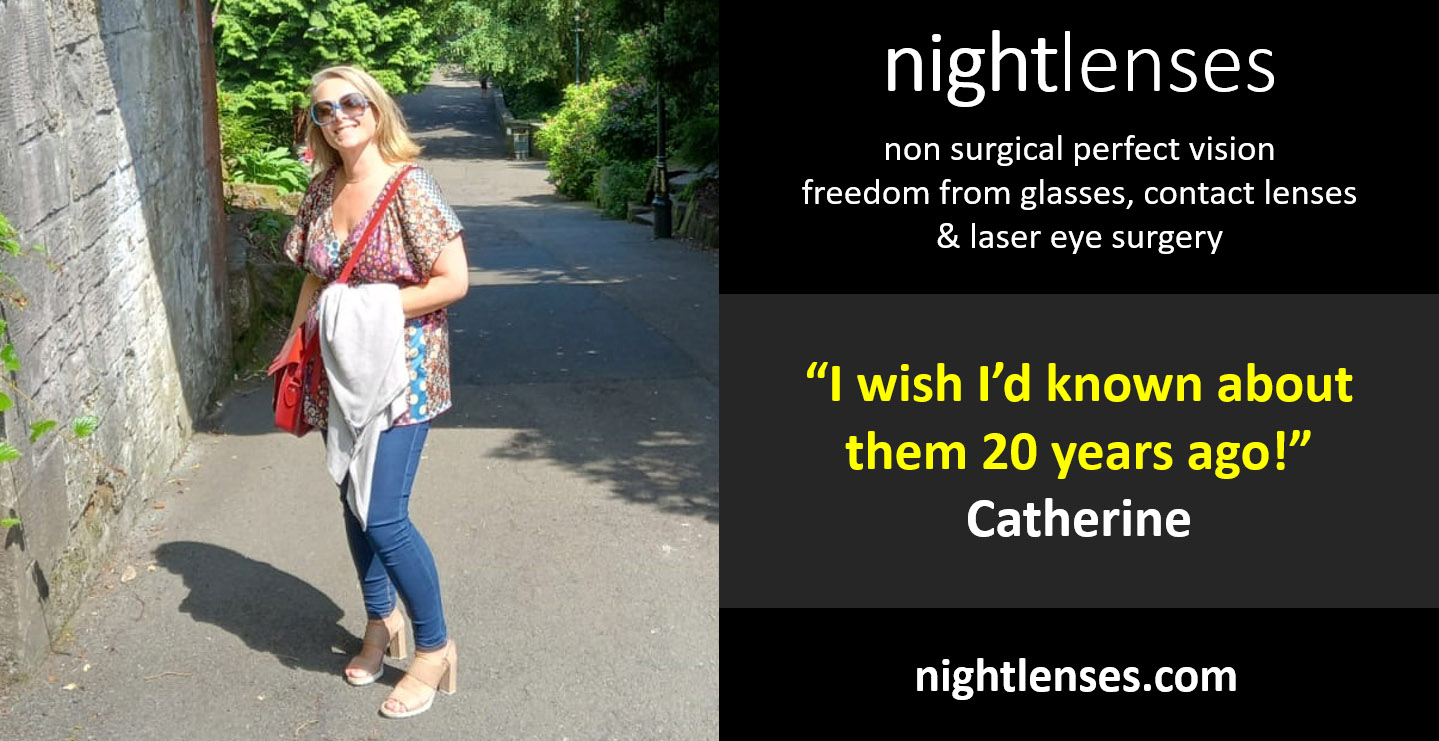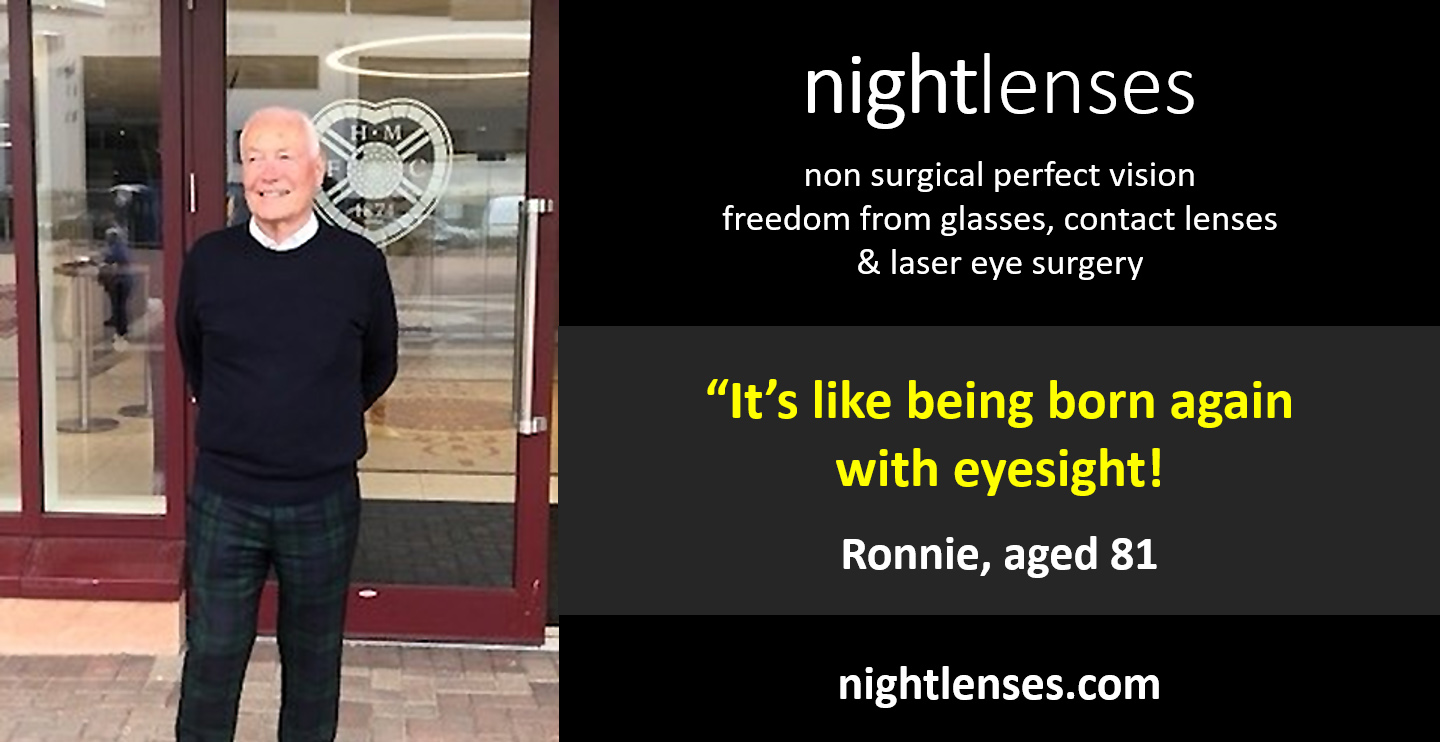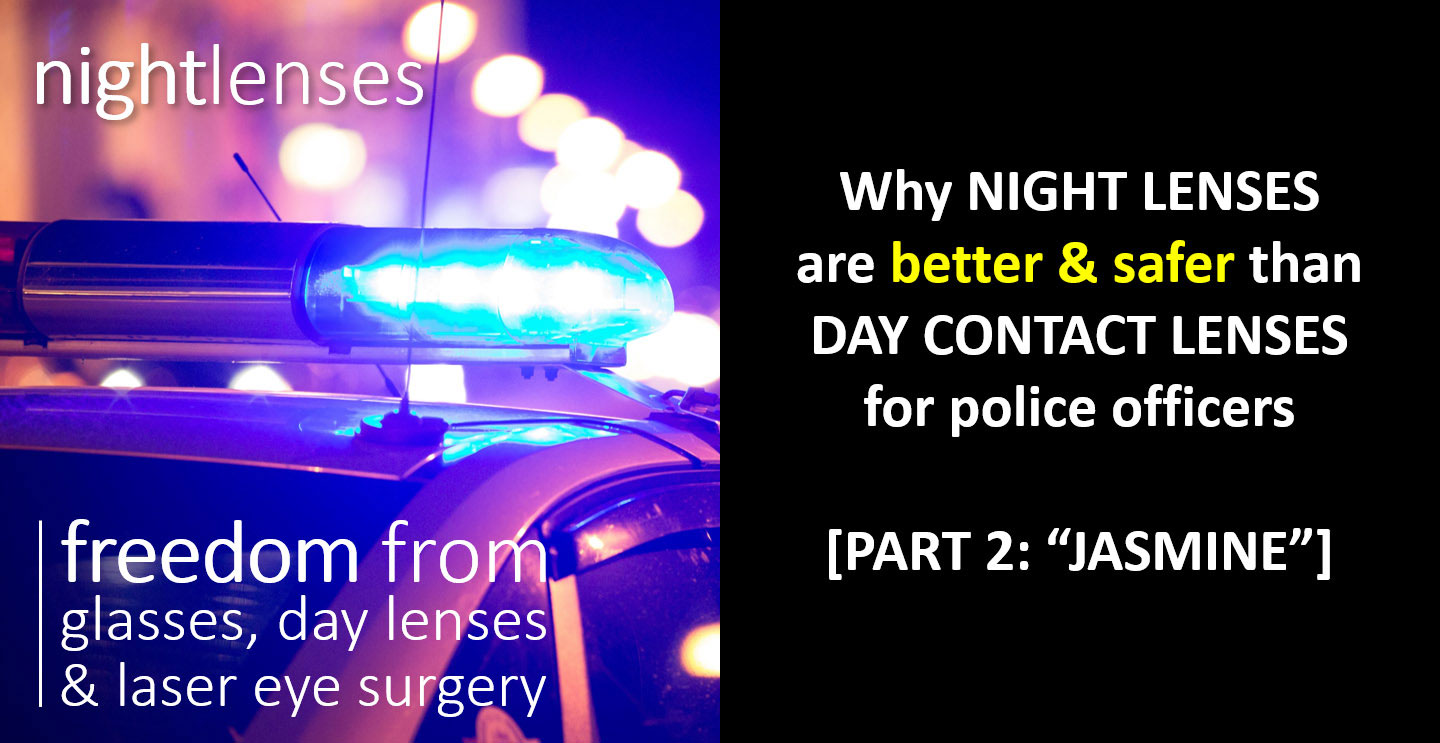Police
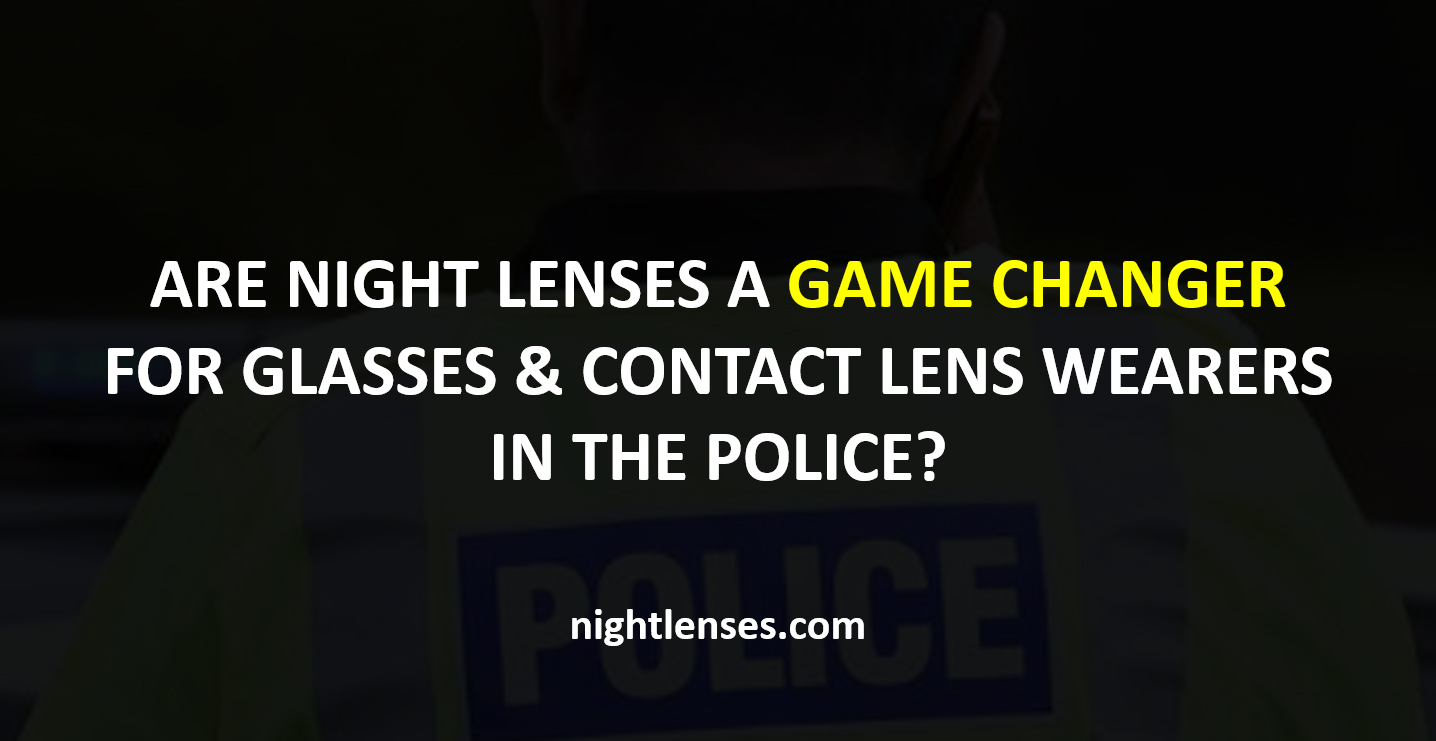
Are NIGHT LENSES a game changer for law enforcement personnel using contact lenses and eyeglasses?
EYEGLASSES vs CONTACT LENSES vs LASER EYE SURGERY
For many active police officers dealing with myopia, the choice between glasses and contact lenses becomes quite clear. In intense and challenging situations, like wet, humid, or confined spaces, glasses can easily get knocked off, broken, or affected by steam, water, grease, or other substances that seem to find their way onto the lens at the most inconvenient times. And let’s not even start with the frustration of fogging up due to PPE on your glasses.
It’s understandable why contact lenses become the preferred option, or even the only option for many, as concerns about the potential risks of laser eye surgery or the financial commitment involved can make LASIK a less practical choice.
ON DUTY: As most officers who wear contact lenses know, daily lenses come with their own set of challenges – they might get dislodged during a volatile situation or be affected by PAVA spray (putting you at risk). They tend to dry out and become uncomfortable after long shifts (affecting your focus and alertness). They can easily get irritated by dust in lofts during searches, sawdust, grit, sand, and other airborne irritants (impairing your ability to perform your duties), and you need specialized equipment to wear them in a CBRN suit.
OFF DUTY: They can fall out during intense exercise or sports, requiring prescription goggles for swimming. They are prone to infection in hot tubs and limit spontaneous beach and pool activities on vacation. You’re constantly forced to consider what you can or cannot do throughout the day.
But is there really no alternative?
Think again!
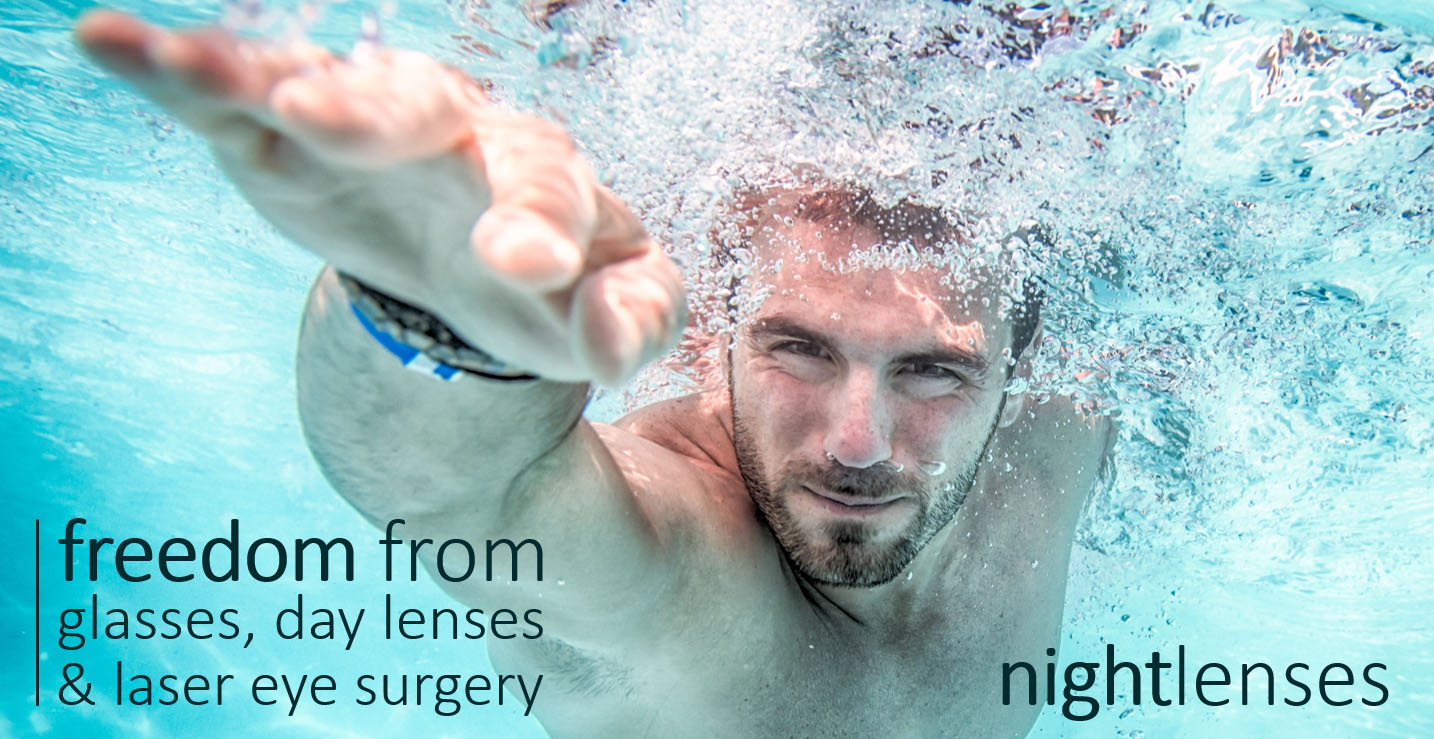
NIGHT LENSES are specialized contact lenses designed to correct nearsightedness while you sleep. Just wake up, remove them, and enjoy clear vision all day long. No need for glasses or daytime contact lenses, and no need for future laser eye surgery. The future of eye care is about having natural vision without any eye accessories or surgical procedures. The future is already here.
The scientific concept behind this innovation is called Orthokeratology. These lenses are also known as ‘Ortho-K’ lenses and have been around for about 20 years. Every night, while you sleep, the outer layer of cells on your cornea naturally sheds, similar to how your skin sheds. The fresh outer layer molds to the lens, reshaping your cornea by morning. This allows light to naturally and accurately focus, resulting in perfect vision. This is a safe and reversible process – simply repeat it each night. [CLICK HERE to watch a 1-minute demonstration of how they work].
No lenses to worry about getting dislodged during altercations, no concerns about PAVA spray, dust, grit, and the like. Open your eyes underwater or in the shower. Say goodbye to dry or itchy eyes after long shifts. Engage in a vigorous, sweaty HIIT class or workout, followed by a sauna session, jacuzzi relaxation, and shower – all without a second thought. Take on the rugby field without worrying about mud on your face, swim freely, roll around on the beach with your children, and dive into the sea on impulse.
Be yourself.
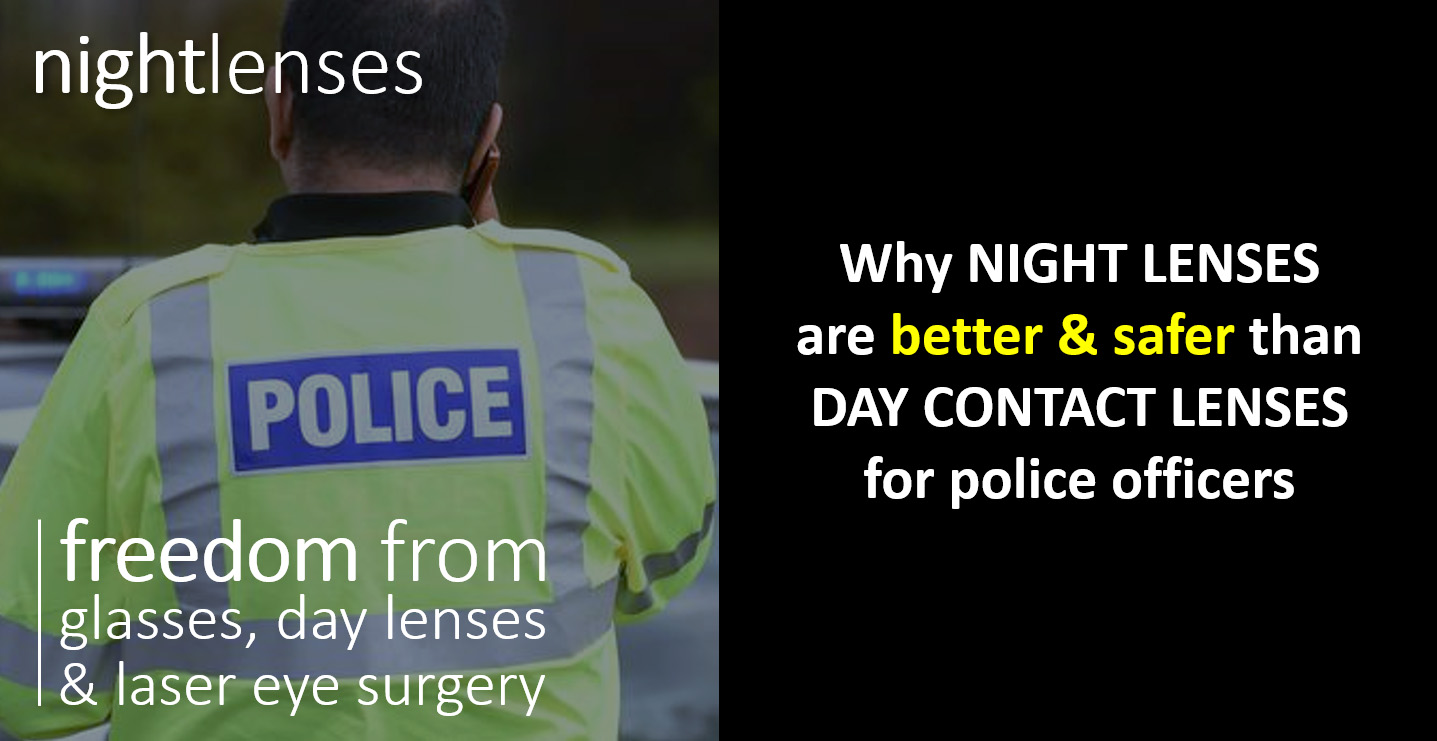
Below, you’ll discover three interviews we conducted with police officers who utilize night lenses, aimed at providing their fellow officers who wear daytime lenses and eyeglasses with valuable insights into the experience:
‘John’ served with TSG in Belfast. CLICK HERE for “John’s” account: eyeglasses > contact lenses > night lenses
‘Jasmine’ holds a specialized role within The Met. CLICK HERE for “Jasmine’s” narrative: eyeglasses > contact lenses > laser (lasted 15 years) > night lenses
“Sarge” – serves as a Sergeant in Birmingham’s City Centre police team. CLICK HERE for Sarge’s tale: contact lenses > night lenses
For confidentiality, John and Jasmine are using pseudonyms due to their roles, and Sarge also chose to remain anonymous. All three unanimously agree that, based on their experiences, night lenses are a preferable and safer option for short-sighted police officers (with prescriptions under -6D) when compared to daytime contact lenses and eyeglasses.
FAQ – QUICK FIRE
FAQ – RAPID RESPONSE
- Cost: Comparable to daytime lenses
- Environmental: Only 2 lenses to dispose of per year (yay!) compared to over 720 day lenses (ugh!)
- Health & safety: No worries as nothing is in your eyes, and the effect can endure for up to 48 hours without a refill
- Cost to the police force (add-on): Equivalent to daytime lenses, and no extra spending on CBRN integration for contact lens users
- New and untested? These lenses have been around for 20 years. They received the first UK CE approval in 2003. Widely embraced in the Netherlands and other countries. Gaining popularity in the UK and around the world.
- Can kids use them? Absolutely, they can. These lenses can manage myopia and reduce future risks of eye conditions. WATCH: Rhys, age 8, see without eyeglasses for the first time!
- Is my optician authorized? Many opticians offer these – ask your optician about night lenses or find a practitioner below
Head round this site for further info, stories and to find your nearest fitter, or quick links to the main stuff below
How do night lenses work – a simple, quick animation demo
Other night lens stories – world champion athlete, watersports, mums, dads and kids
Where is my nearest fitter?

